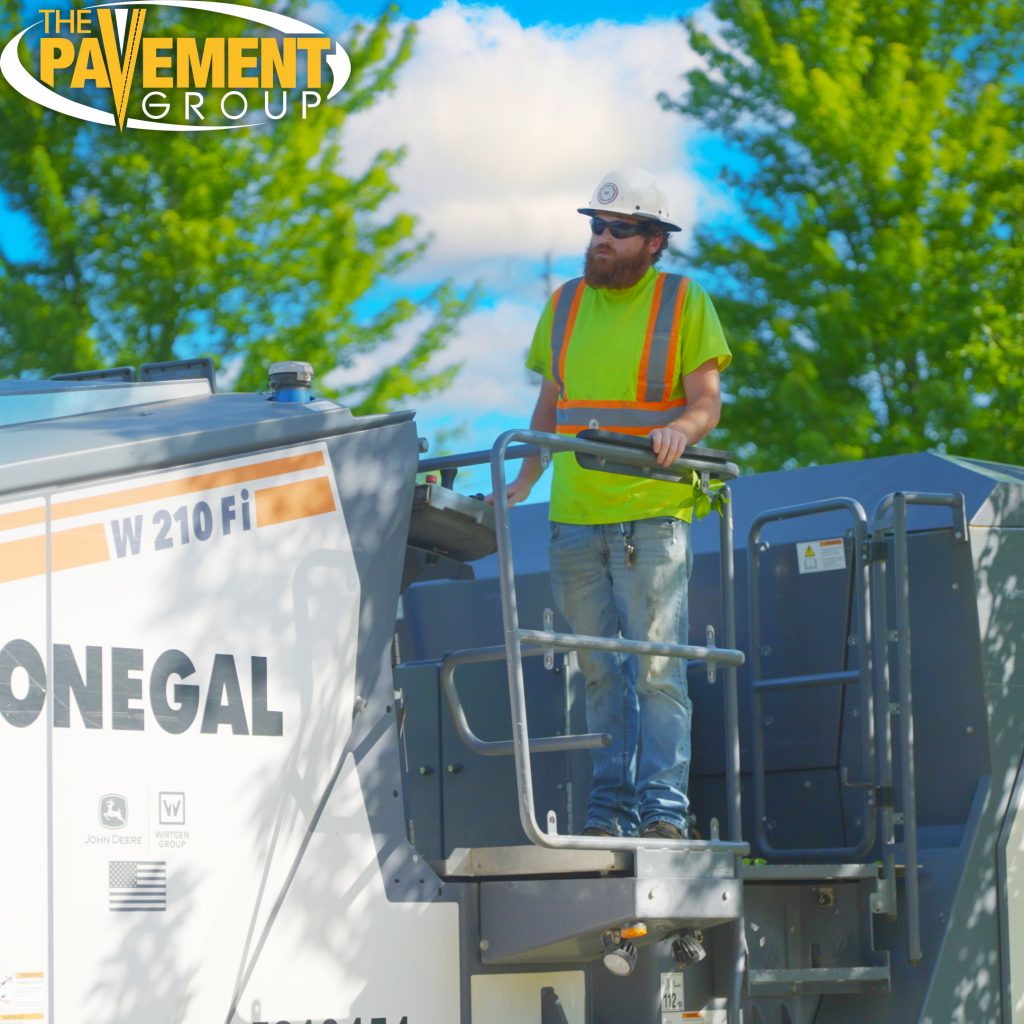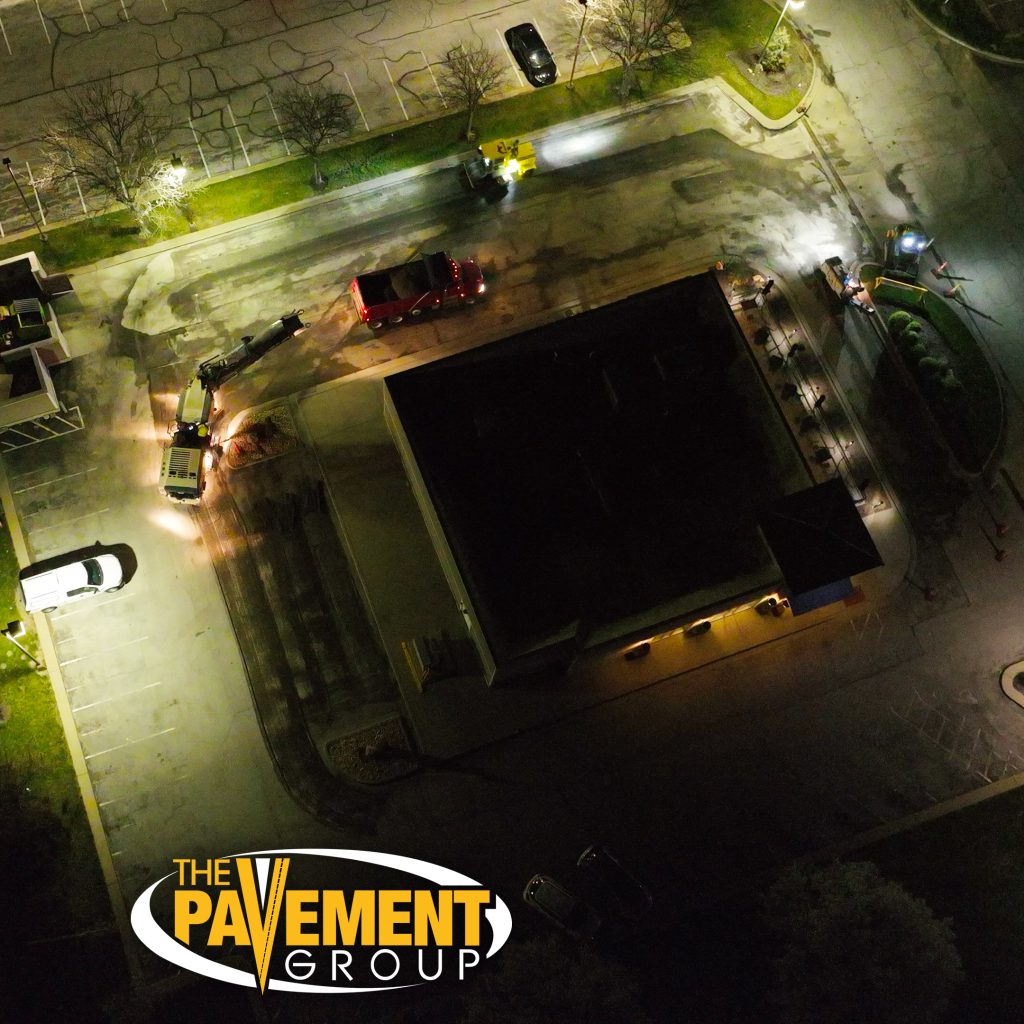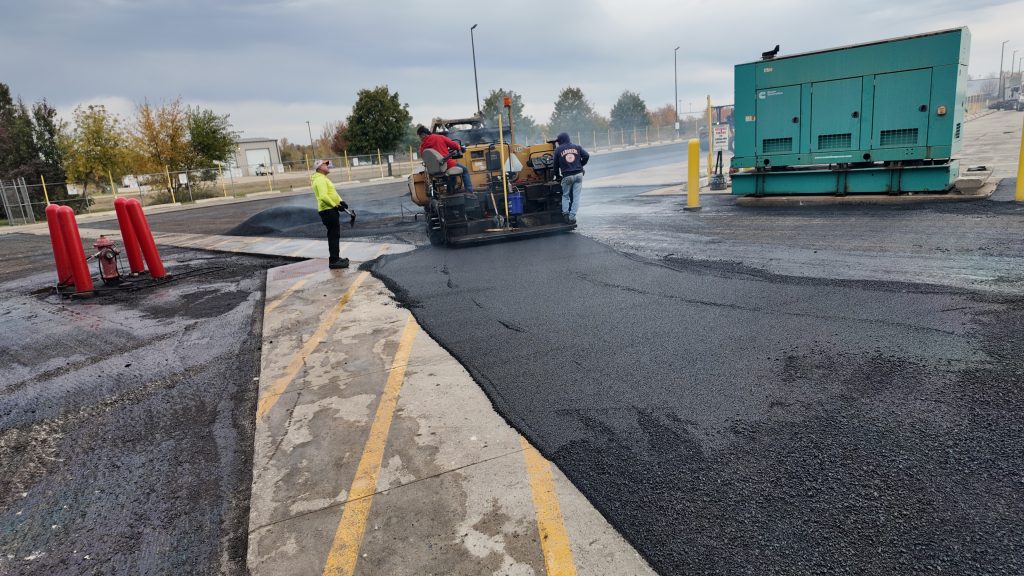Retail environments depend heavily on first impressions. The parking lot and walkways are often the first things customers see. Well-maintained pavement creates an inviting atmosphere, ensures safety, and reduces long-term maintenance costs. Many retail property managers focus on building interiors but underestimate the role of consistent pavement care. Routine inspections are one of the smartest and most cost-effective strategies to preserve property value and prevent expensive repairs. Let’s explore why routine pavement inspections are essential for every retail property and how they contribute to safer, longer-lasting surfaces.
Why Regular Pavement Inspections Matter
Pavement naturally degrades over time due to weather, traffic, and environmental factors. Cracks, potholes, and drainage issues can appear slowly but cause major structural problems if ignored.
According to the National Asphalt Pavement Association (NAPA), early detection through inspections can extend pavement life by more than 40%. Identifying small issues before they escalate saves money and keeps your retail property safe and attractive.
Routine inspections are not just about maintenance. They’re about risk management and protecting your investment.
1. Ensuring Customer and Employee Safety
Safety is the top priority in any retail space. Damaged pavement increases the risk of slips, trips, and vehicle damage.
Uneven surfaces or unmarked hazards can lead to costly liability claims. Regular inspections identify these dangers early, allowing for quick, affordable fixes.
Safe, smooth pavement not only protects your customers but also enhances your brand reputation.
2. Preventing Expensive Repairs
Ignoring small cracks or drainage issues can lead to severe structural damage. Over time, water seeps into the pavement base, causing erosion and potholes.
Routine inspections detect early warning signs so minor repairs can be completed before full replacement becomes necessary. Preventive action always costs less than major reconstruction.
A consistent inspection schedule ensures you stay ahead of potential problems year-round.
3. Improving Curb Appeal and Customer Experience
Customers notice the condition of your parking lot before they enter your store. Clean, well-marked, and smooth pavement projects professionalism and care.
A neglected surface filled with cracks or faded striping sends the wrong message. Regular inspections help maintain that polished, welcoming look that keeps shoppers returning.
4. Supporting Long-Term Pavement Lifespan
Pavement is a long-term investment, and like any asset, it needs proper upkeep. Regular inspections help you catch early deterioration caused by UV exposure, oil leaks, or temperature shifts.
Scheduling maintenance at the right time can double the pavement’s lifespan. Preventive care, guided by regular inspections, keeps your retail property functional and visually appealing for years.
5. Enhancing Budget Planning and Predictability
Routine inspections provide valuable data about pavement conditions and maintenance needs. This information helps retail managers budget more accurately and plan maintenance schedules strategically.
Predictable maintenance costs are easier to manage than sudden, large-scale repairs. Knowing what’s coming allows for smarter allocation of resources.
6. Meeting Compliance and Liability Standards
Retail properties must comply with ADA (Americans with Disabilities Act) and local safety standards. Uneven surfaces, poor drainage, or unclear markings can violate these regulations.
Routine inspections help ensure your property remains compliant, avoiding fines and potential legal disputes. Compliance also demonstrates your commitment to accessibility and public safety.
7. The Role of Weather and Seasonal Changes
Seasonal shifts in temperature and precipitation affect pavement durability. Cold winters cause cracking and frost damage, while hot summers can lead to softening and oxidation.
Regular inspections before and after extreme weather help you stay proactive. Addressing seasonal damage quickly prevents further deterioration and keeps your property operational year-round.
Testimonial: Protecting Property Value Through Routine Care
“Our Parking Lot Looks Brand New Again” – James R., Retail Property Manager, Denver
“We used to wait until something broke before scheduling repairs. After implementing routine pavement inspections, we caught small cracks before they worsened. Our lot has stayed smooth, clean, and safe—customers even noticed the improvement. Best decision we ever made.”
Regular inspections not only protect your investment but also elevate your property’s visual appeal and customer experience.
8. The Cost-Saving Power of Preventive Maintenance
Preventive maintenance may seem like an added expense, but it saves substantial money long-term. Repairing cracks early prevents water infiltration that leads to full-scale pavement failure.
The Federal Highway Administration (FHWA) reports that every $1 spent on preventive maintenance saves up to $10 in reconstruction costs.
Routine inspections make these savings possible by spotting issues early enough for minor, low-cost repairs.
9. Partnering with Professionals for Accurate Assessments
While visual inspections by staff are helpful, professional assessments provide deeper insights. Pavement experts use advanced tools to detect subsurface issues and drainage inefficiencies.
A professional inspection report outlines repair priorities, cost estimates, and long-term maintenance recommendations. This level of precision ensures every dollar you spend delivers maximum value.
10. Establishing a Consistent Inspection Schedule
Consistency is key. Schedule formal pavement inspections at least twice per year. Once in spring and again in fall.
This allows you to assess winter damage and prepare for summer conditions. Adjust schedules based on climate, foot traffic, and property size. Sticking to a schedule prevents problems from slipping through the cracks, literally.
Ready to Start a Smarter Pavement Maintenance Routine?
Schedule your professional inspection with The Pavement Group today and discover the cost-effective way to preserve your property’s value and safety. Protect your investment now, and keep your retail environment smooth, safe, and inviting for years to come.
Frequently Asked Questions
1. Why are routine pavement inspections important in retail environments?
Routine inspections help identify cracks, potholes, and drainage problems early. Early detection prevents costly damage and safety hazards. Regular assessments also maintain property value and customer satisfaction.
2. How often should pavement be inspected in retail areas?
Most experts recommend inspections at least twice a year. Spring and fall are ideal times for detailed evaluations. Frequent checks ensure timely repairs and longer-lasting pavement.
3. What are the most common pavement issues found during inspections?
Inspections often reveal cracks, surface erosion, standing water, and faded markings. These issues may seem minor but can worsen quickly. Addressing them early reduces repair costs and improves safety.
4. How do routine inspections save money for retail property managers?
Inspections catch small defects before they develop into major damage. This prevents expensive reconstruction projects later. Preventive care is always more cost-effective than emergency repairs.
5. What happens if retail pavement problems are ignored?
Neglecting small cracks or drainage issues can lead to full pavement failure. Damaged surfaces pose liability risks and deter customers. Ignored maintenance also increases long-term costs.
6. How do inspections improve retail property safety?
Regular inspections identify trip hazards, uneven surfaces, and potholes. Quick repairs reduce the risk of accidents or injuries. Maintaining safe pavement supports both customer and employee safety.
7. Who should perform pavement inspections?
Professional pavement contractors or engineers should perform detailed inspections. They use specialized tools to detect hidden structural issues. Expert evaluations ensure accurate reporting and proper maintenance planning.
8. What role does weather play in pavement deterioration?
Extreme heat, freezing temperatures, and rainfall accelerate wear and tear. Seasonal changes cause cracking and water infiltration. Routine inspections before and after harsh weather keep surfaces stable.
9. How do inspections affect a retail property’s image?
Smooth, well-maintained pavement boosts curb appeal and customer confidence. It shows attention to detail and proper care. A clean, safe parking lot directly enhances brand perception.
10. Can routine inspections extend the lifespan of pavement?
Yes, consistent inspections and timely repairs can double pavement lifespan. Preventive maintenance stops minor damage from spreading. Long-term inspection programs ensure lasting durability and cost savings.


